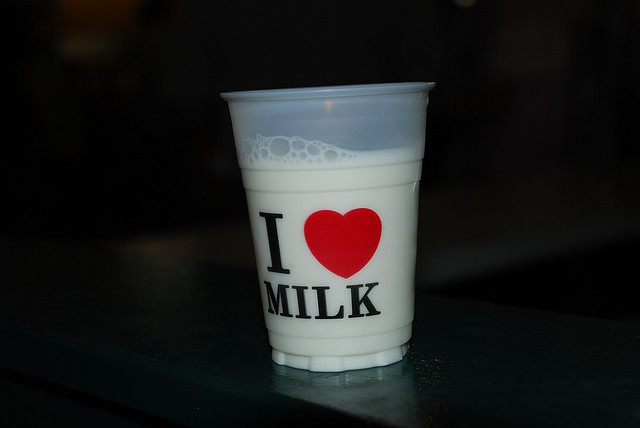
Excess of anything is bad. Milk has always been known for its goodness as it provides all the nutrients needed to keep the body, mainly the bones, healthy. However, a latest research shows that drinking too much milk can do more harm than good.
Milk is rich in several vital vitamins and minerals, including calcium, protein, potassium, iodine, vitamin B2, B12 and phosphorus. Experts at the Medline Plus recommend parents to introduce cow's milk to their babies after their first birthday. They also specify that the toddlers should be given whole milk so that they receive all the important fats needed for brain development. Milk and its products are also believed to protect against osteoporotic fractures.
Contradicting this, a new study reported in The BMJ found that high milk intake increased the risk of fractures and death.
When taken on a large scale, the lactose and galactose in the milk can increase oxidative stress and chronic inflammation, researchers, while explaining the occurrence, said.
As part of the study, nearly 106,772 people, both men (45,339) and women (61,433), aged between 39 and 79, recorded their food habits- mainly intake of milk, yogurt and cheese- through a questionnaire. Researchers also collected information on the marital status, educational qualification, height, weight and lifestyle of the participants. Prevalence of fractures and death was determined via national registers.
In both men and women, excessive consumption of milk increased risk of death and fractures. However, the risk was higher for women than men.
During the 20-year-follow up of the study, researchers recorded 15,541 deaths, 17, 252 fracture cases, mainly hip fracture (4,259) among the women participants.
Risk of death was high among participants who consumed three or more glasses of milk (680 ml) every day, compared to one glass of milk, i.e. 60 ml. Similarly, risk of fracture continued, irrespective of the total amount of milk one consumed.
In men, about 10,112 deaths and 5,066 fractures (hip fracture- 1,166) were reported during the study period of 11 years.
Researchers also identified certain biomarkers of oxidative stress and inflammation associated with high intake of milk.
"Our results may question the validity of recommendations to consume high amounts of milk to prevent fragility fractures," professor Karl Michaëlsson and colleagues from Sweden, wrote, according to a news release. "The results should, however, be interpreted cautiously given the observational design of our study. The findings merit independent replication before they can be used for dietary recommendations."
However, consumption of fermented milk products, with low levels of lactose, reduced the risk of mortality and fracture.















